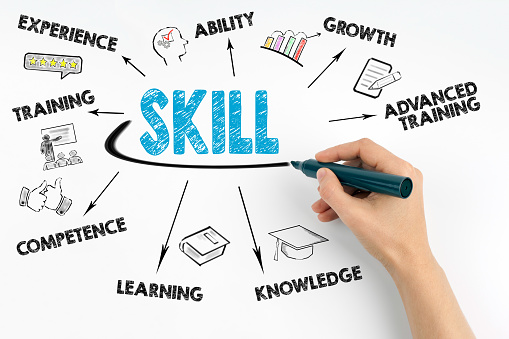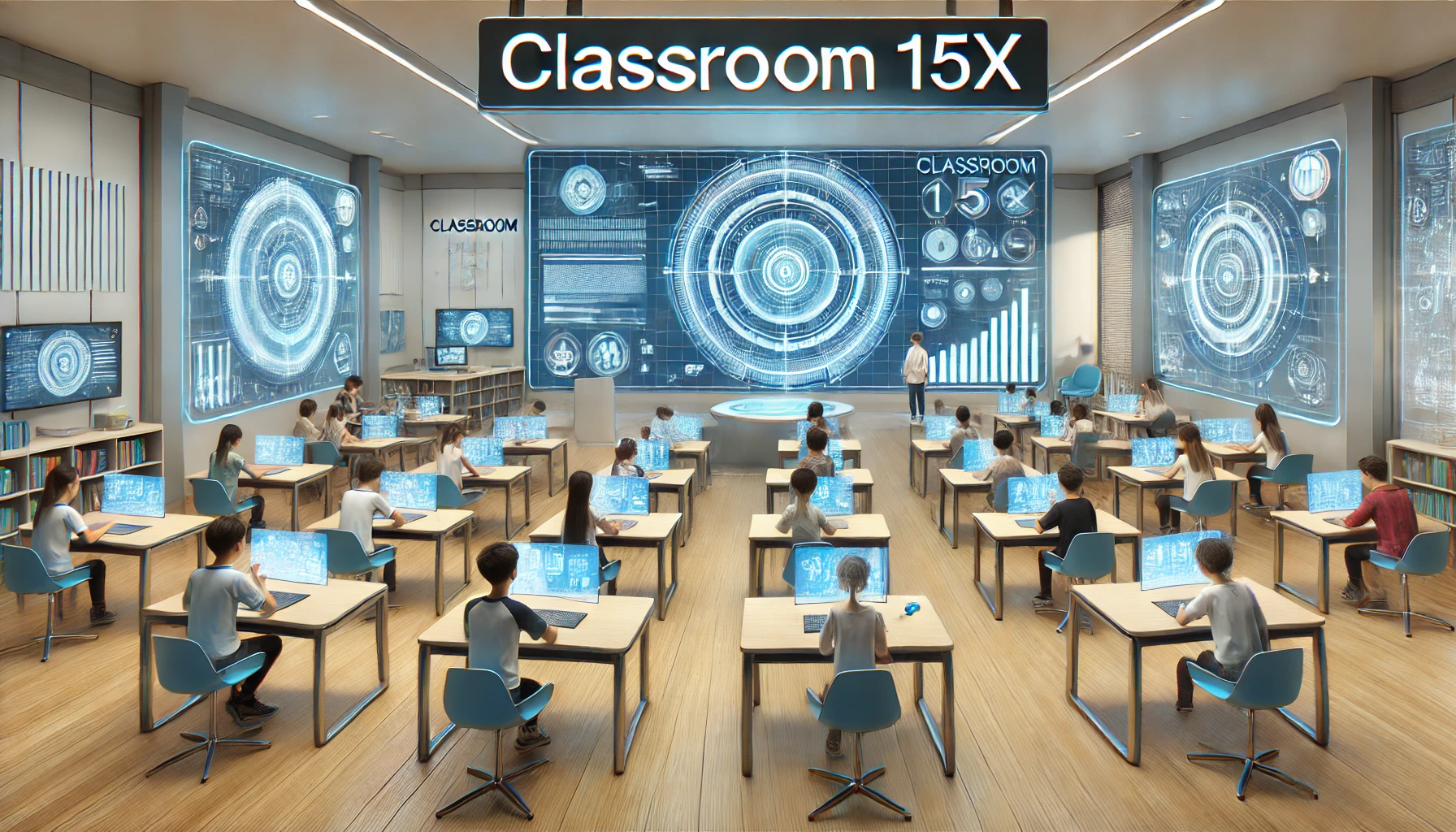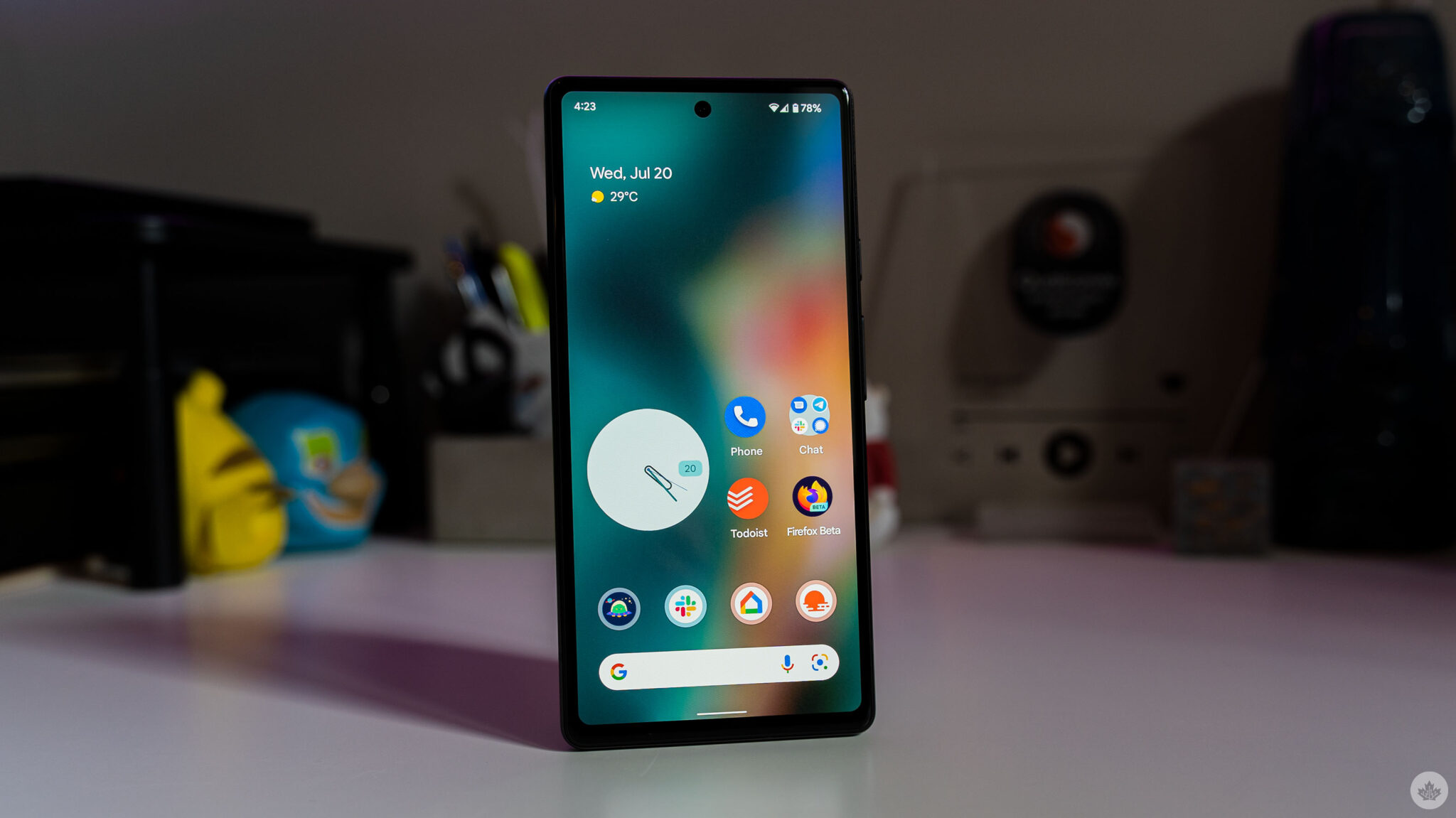EDUCATION
6 Best Future Skills to Start Learning Today

As the world moves with the Fourth Industrial Revolution, the job market requires employees to be equipped with updated skills to stay competitive and satisfy business needs. Having these future-ready skills is the best way to ensure your career stays secure. So, if you’re looking to reskill or get a leg up in your current career, here are some of the most popular and highly-paid future skills to start learning today.
Creativity
Creativity is the ability to come up with ideas that are unique, new, and have an impact on society. It can be a difficult skill to learn, but it is an important one that will help you in your career and personal life.
It is said that creativity can be influenced by several factors such as the environment, intelligence, and personality traits. It can also be influenced by luck (accident) or spiritual inspiration. This is because creativity can be a great way to connect with others and get a different perspective on things. It can also be a good way to find solutions to problems that others might not think of.
A lot of research has been done on this topic and it has shown that creativity can be a great way to boost your confidence and improve your overall mood. It can also be a great way to help you focus on your goals and improve your overall productivity levels. In the modern world, creativity is an important part of the economy. It helps businesses develop new products and services, and it can even lead to economic growth. Besides, it can be very rewarding.
Communication
Communication is a key skill to have for any job or career. Whether you’re a doctor, lawyer or businessman, you need to be able to communicate effectively. There are different kinds of communication, including verbal, non-verbal, written and visual. Each has its own advantages and disadvantages, so it’s important to understand them all well.
The most common type of communication is verbal, which includes speaking and writing. It’s also important to understand that nonverbal communication, such as body language and voice inflection, is just as important as the words you use.
A good way to start learning these skills is by taking a course online. Fortunately, there are plenty of high-quality courses out there. One of the best ways to improve your communication skills is through the practice of active listening. This is a skill that requires paying attention to the speaker, removing all distractions and asking clarifying questions.
Critical Thinking
The ability to think critically is one of the best future skills to start learning today. It can help you to make better decisions and solve problems more effectively. Critical thinking involves analysing issues and situations based on facts instead of biases or personal opinions. It also means focusing on accuracy, precision and consistency.
Employers often place a high value on people who are good at critical thinking, as it allows them to evaluate information objectively and make trustworthy decisions. Students who are able to identify the deep structure of a problem have the best chance of successfully applying their learned critical thinking skills in new contexts, regardless of subject matter or discipline.
Educators can teach students this skill by asking them to compare the deep structure of different problems and scenarios. When they do this, they are able to recognize similarities and differences that lead them to decide which learned skill they need to apply in the situation at hand.
Analytical Thinking
Analytical thinking is a key skill that many employers seek. It involves taking in data, analysing it and coming up with solutions that are based on facts rather than speculation. It also includes identifying improvement possibilities and preventing disasters before they occur. It can be useful in a variety of fields, from health and safety to business, science, and engineering.
People who can analytically think have the ability to break down large problems into manageable pieces. This allows them to focus on the most important parts of a problem and find solutions quickly. They may also have a better understanding of why a specific decision was made. This helps them make decisions that will benefit the company as a whole.
One of the most valuable skills to develop is analytical thinking, which can help you decide whether a particular action or idea will be beneficial. It can also help you understand your own biases and how they affect your decisions. You can practice these skills by participating in debates, filling out crossword puzzles, and playing math’s games. Practicing these activities will not only improve your problem-solving skills, but they will also strengthen your communication skills.
The ability to analyze and solve problems is a key skill for any job, and it will be especially important as more jobs are automated. It is a key skill that employers seek when hiring new employees, and it is essential to developing a successful career in the future.
Interpersonal Skills
A good set of interpersonal skills can make you a star employee. Whether you work in IT, customer service, real estate, or another industry, being able to communicate clearly and effectively is essential for success.
Many people are naturally born with great interpersonal skills, but there are also some skills that can be learned and developed. These include communication skills, the ability to handle conflict, teamwork, empathy, and a positive attitude. Interpersonal skills are important for all aspects of life, and employers want to see them on your resume. They’ll be able to assess your interpersonal abilities during the interview process, and they’ll help you develop strong relationships with other employees and coworkers.
You can build your interpersonal skills by focusing on improving the way you interact with others, both at work and at home. This can be done by attending workshops, taking classes and interacting with people outside of work.
Digital Literacy
Whether you’re a student or someone in the workplace, digital literacy is one of the best future skills to start learning today. It includes understanding how to find information online, use a search engine and navigate websites. It also teaches students how to communicate online and share their knowledge.
Developing digital literacy is essential as the internet grows and becomes more integral in our society, allowing us to interact with people all over the world. It also requires students to think critically about how they can use this information in a safe and responsible manner. When it comes to finding information online, it’s important for students to learn how to identify and evaluate the reliability of different sites. They should know how to find author information, dates of publication and other factors that can help them decide whether or not a website is trustworthy.
Digital literacy can also help students create content online that they share with others, such as social media posts and blogs. This involves a level of creativity that differs from print writing, according to Renee Hobbs, a professor of communication studies at the University of Rhode Island. Students also need to understand how to protect their privacy online, using strong passwords and protecting their digital footprint. It’s not uncommon for students to assume that everything they share online is private, but this can be misleading. It’s also important for them to understand how they can prevent cyberbullying and other forms of inappropriate behaviour online.
EDUCATION
Ashley Fontera Sterling Middle School: Transforming Education Through Innovation

Ashley Fontera is a dedicated educator known for her leadership at Sterling Middle School. She has worked tirelessly to improve education standards, ensuring students receive quality learning experiences. Her focus on innovation, student engagement, and community involvement has transformed the school.
Under her leadership, Sterling Middle School has seen significant improvements in academic performance. She introduced new teaching strategies that make learning more interactive and engaging. These changes have helped students perform better in various subjects.
Fontera believes that education is not just about grades but also about personal growth. She has created programs that support students emotionally and socially. This approach has built a positive learning environment where students feel valued and motivated.
The school’s reputation has grown due to her commitment to excellence. More families are choosing Sterling Middle School because of its improved academic programs and student-focused initiatives. Her leadership has made a lasting impact on both students and teachers.
Who is Ashley Fontera?
Ashley Fontera has always been passionate about education. She pursued higher studies in educational leadership, which helped her understand the challenges faced by schools. Her strong educational background and experience have shaped her approach to school management.
Before joining Sterling Middle School, she worked in various educational institutions. These experiences gave her insights into different teaching methodologies and student needs. She applied these learnings to bring positive changes to her current school.
Her leadership style focuses on collaboration and innovation. She believes in working closely with teachers, students, and parents to improve the overall learning experience. This teamwork has been crucial in making the school more efficient and student-friendly.
She is known for her ability to inspire others. Many educators look up to her as a role model in the field of education. Her vision and dedication continue to bring growth and success to Sterling Middle School.
About Sterling Middle School
Sterling Middle School is a well-known educational institution that serves a diverse group of students. It offers a balanced curriculum that focuses on academics, extracurricular activities, and personal development. The school aims to create a nurturing environment where students can excel.
The school has made significant improvements in recent years. Under Ashley Fontera’s leadership, there have been upgrades in teaching methods, infrastructure, and student support services. These enhancements have made learning more effective and enjoyable for students.
It provides various programs that cater to different student interests. There are clubs for science, arts, and sports, ensuring that every student finds something they are passionate about. These activities help students develop skills beyond the classroom.
Parents and community members actively participate in school events. This strong relationship between the school and the local community has contributed to its success. Sterling Middle School is now considered one of the best institutions for middle school education.
Key Initiatives Led by Ashley Fontera
Ashley Fontera has introduced several key initiatives that have transformed Sterling Middle School. Her focus on academic improvement, student support, and teacher development has brought positive changes. She continues to innovate and find new ways to improve the school.
One of her major achievements is the modernization of the curriculum. She has integrated technology into classrooms, allowing students to use digital tools for learning. Interactive teaching methods have replaced traditional lecture-based approaches, making education more engaging.
Teacher Training & Development
- She regularly organizes workshops and training sessions for teachers.
- Teachers are encouraged to use new strategies that enhance student learning.
- Collaborative teaching methods have improved overall classroom performance.
She has also expanded student support services. The school now offers counseling programs to help students with academic and personal challenges. This has created a more inclusive environment where every student feels supported.
Another significant initiative is community involvement. She has partnered with local businesses and organizations to provide students with career guidance and mentorship opportunities. These collaborations help students gain real-world exposure.
Impact of Her Leadership
The improvements in Sterling Middle School under Ashley Fontera’s leadership are clearly visible. Student test scores have risen, and overall academic performance has improved. More students are actively participating in learning activities and extracurricular programs.
The school’s atmosphere has become more positive and inclusive. Students feel more confident and motivated to succeed. Teachers have also benefited from better training and professional development opportunities.
Increased Student Engagement
- More students are joining clubs, sports, and academic competitions.
- Classroom participation has increased due to interactive teaching methods.
- Students feel more involved in their education and personal growth.
Parents have expressed satisfaction with the school’s progress. They feel more connected to their children’s education and are actively involved in school activities. The trust between parents and educators has strengthened.
Ashley Fontera’s leadership has made Sterling Middle School a model institution. Her focus on continuous improvement ensures that the school keeps evolving and adapting to the changing educational landscape.
Challenges Faced and Overcome
Leading a school comes with challenges, and Ashley Fontera has tackled them effectively. One of the main challenges was updating outdated teaching methods. She introduced modern educational tools and provided teachers with the necessary training to adapt.
Budget constraints were another issue. Implementing new programs required funding, and securing financial support was difficult. However, she successfully gained funding through grants, partnerships, and community support.
Diverse Student Needs
- Some students required additional learning support.
- Counseling services were expanded to help students with personal challenges.
- Extra academic programs were introduced for struggling students.
Managing school operations during difficult times, such as the pandemic, was also challenging. She ensured that online learning was effective and that students remained engaged despite remote education. Her ability to adapt helped the school navigate these uncertain times.
These challenges have only made her a stronger leader. She continues to find solutions that benefit both students and teachers, ensuring that the school thrives despite obstacles.
Future Vision and Goals
Ashley Fontera has ambitious plans for the future of Sterling Middle School. She aims to further enhance the curriculum by introducing advanced STEM (Science, Technology, Engineering, and Math) programs. She wants students to develop skills that will help them succeed in the modern world.
She also plans to expand extracurricular activities. More arts, music, and sports programs will be introduced to give students a variety of creative and physical outlets. These activities will promote a well-rounded education.
Stronger Technology Integration
- More digital learning tools will be added to classrooms.
- Virtual learning opportunities will be expanded for students.
- Teachers will receive further training in technology-based education.
Another goal is to strengthen partnerships with colleges and universities. This will help students transition smoothly from middle school to higher education. Career guidance programs will also be expanded to prepare students for the future.
Ashley Fontera’s vision is to make Sterling Middle School a leader in innovative education. Her long-term goals focus on student success, teacher development, and community involvement.
Conclusion
Ashley Fontera’s leadership has transformed Sterling Middle School into a high-achieving institution. Her focus on modernizing education, supporting students, and training teachers has led to remarkable improvements. She continues to inspire both students and educators.
The school now has a positive and engaging environment where students feel motivated to learn. Parents and the community actively participate in school activities, strengthening the bond between education and society.
Her ability to overcome challenges and implement new strategies has set a high standard for educational leadership. Her contributions to Sterling Middle School will have a lasting impact on future generations of students.
Ashley Fontera’s dedication to education is a testament to the power of strong leadership. Through her efforts, Sterling Middle School has become a model for schools seeking to improve their academic and extracurricular programs.
FAQs
Who is Ashley Fontera?
Ashley Fontera is an educational leader known for transforming Sterling Middle School through innovative teaching methods and student-focused initiatives.
How has Ashley Fontera improved Sterling Middle School?
She introduced technology-based learning, enhanced teacher training, and expanded student support programs, resulting in higher academic performance.
What challenges did Ashley Fontera face as a principal?
She tackled outdated teaching methods, budget limitations, and diverse student needs by implementing strategic educational reforms.
What future plans does Ashley Fontera have for Sterling Middle School?
She aims to expand STEM programs, integrate more digital learning tools, and strengthen partnerships with colleges and industries.
Why is Sterling Middle School gaining recognition under her leadership?
The school now offers a modernized curriculum, improved student engagement, and a supportive learning environment for all students.
EDUCATION
BetterThisFacts: Your Go-To Source for Verified Knowledge

BetterThisFacts is an online platform dedicated to sharing accurate, well-researched, and engaging information across various fields. In today’s world, where misinformation spreads quickly, having a trustworthy source is crucial.
This platform provides information in simple language, making it accessible to people of all ages. Whether someone is looking for science facts, historical events, or health tips, they can find reliable and easy-to-understand content here.
The purpose of BetterThisFacts is not just to inform but also to help people develop critical thinking skills. By presenting facts in a clear and structured way, the platform ensures that users can distinguish between authentic and misleading information.
In a time when social media often spreads unverified claims, BetterThisFacts stands out as a platform committed to truth and knowledge. It acts as a learning hub, encouraging people to explore verified facts and useful insights.
History and Background
The idea behind BetterThisFacts came from a growing need for trustworthy and fact-checked content. Many online sources either misrepresent facts or lack proper verification, leading to confusion among readers.
When the platform was founded, its goal was to provide easily accessible knowledge for everyone. The creators wanted to make sure that the information was not only factual but also engaging and simple.
Over time, BetterThisFacts has expanded its reach. It has introduced new categories, improved its fact-checking process, and included interactive content to keep readers engaged.
Today, it serves as a reliable learning source, used by students, researchers, and general knowledge seekers. With millions of visitors, it continues to grow as a leading educational platform.
Mission and Goals
The primary mission of BetterThisFacts is to deliver accurate, well-researched, and engaging information. It aims to help users access trustworthy facts without misinformation.
Another important goal is to promote digital literacy. In today’s internet-driven world, it’s essential for people to recognize false or misleading information. This platform teaches users how to differentiate real facts from fake ones.
Additionally, BetterThisFacts focuses on making knowledge easy to understand. It avoids complex language and presents facts in a simplified yet informative manner.
The long-term goal is to expand globally, covering more topics and reaching more people. By maintaining high standards of accuracy and credibility, it continues to be a trusted name in factual content.
Types of Content Available
BetterThisFacts covers a wide range of topics, ensuring there is something for everyone. Each category is thoroughly researched to provide accurate and up-to-date information.
Main Categories Include:
- Science & Technology – Latest discoveries, innovations, and scientific breakthroughs.
- Health & Wellness – Nutrition, medical advice, fitness tips, and mental well-being.
- History & Culture – Significant historical events, traditions, and cultural facts.
- Education & Learning – Study guides, language learning, and academic resources.
- Fun Facts & Trivia – Engaging and surprising facts for entertainment and learning.
The platform ensures that all content is verified, avoiding myths and misinformation. Readers can trust the facts presented and use them for learning or academic purposes.
With interactive elements like quizzes, infographics, and short summaries, the platform makes learning both fun and engaging.
Fact-Checking Process
To maintain credibility, BetterThisFacts follows a strict fact-checking process. Every piece of information is reviewed before publication.
First, the content is researched using authentic sources, including books, scientific studies, and historical records. This ensures that the facts are not based on opinions or assumptions.
Second, the information is cross-verified by experts in different fields. This process ensures that any misleading or incorrect data is removed or corrected.
Third, the content is updated regularly to reflect the latest findings. Science and history evolve, and keeping facts current is a key priority.
Here’s how BetterThisFacts ensures accuracy:
| Step | Process | Purpose |
| 1 | Research from credible sources | Ensure facts are accurate |
| 2 | Cross-verification by experts | Remove errors & misleading info |
| 3 | Regular content updates | Keep information relevant |
| 4 | User feedback system | Improve accuracy & reliability |
This structured process makes BetterThisFacts a trusted knowledge source, ensuring that readers receive only factual and relevant information.
Key Features and Strengths
One of the biggest strengths of BetterThisFacts is its clarity and simplicity. It presents facts in a way that is easy to understand without oversimplifying important details.
Another strong point is its regular updates. Unlike many static knowledge sources, this platform continuously adds new information and revises older content.
Additionally, BetterThisFacts offers interactive learning methods, such as:
- Infographics – Visual representation of key facts.
- Quizzes – Fun way to test knowledge.
- Quick summaries – Key takeaways from each topic.
By combining accuracy, readability, and engagement, the platform has become a popular choice for students, educators, and general readers.
User Engagement & Community Involvement
BetterThisFacts is not just a knowledge platform—it’s a community-driven space where users can interact and contribute.
Readers can suggest topics or corrections, ensuring that the platform remains dynamic and user-focused. This helps maintain transparency and accuracy.
It also has a social media presence, where users can discuss facts, share opinions, and engage in educational discussions.
The platform values user feedback and constantly improves its content based on reader suggestions and expert reviews.
By involving users in the fact-checking and learning process, BetterThisFacts builds a reliable and interactive knowledge-sharing environment.
Comparison with Other Knowledge Platforms
BetterThisFacts stands out from other fact-based platforms due to its engaging format, accuracy, and accessibility. Unlike Wikipedia, which can be complex and technical, this platform focuses on easy readability.
Unlike personal blogs, which may contain biased opinions, BetterThisFacts ensures that all information is neutral and fact-checked.
Another advantage is that it presents facts concisely, avoiding overloading users with excessive details.
This balance between credibility and readability makes it a unique and valuable learning resource.
Impact and Future Goals
BetterThisFacts has already made a significant impact by promoting accurate knowledge-sharing. Thousands of students, educators, and curious minds use it as a trusted source of information.
The platform’s future plans include:
- Expanding content categories to cover more subjects.
- Introducing video-based learning for better engagement.
- Strengthening AI-driven fact-checking for faster verification.
By constantly improving and evolving, BetterThisFacts aims to become the leading source of verified knowledge worldwide.
Conclusion
In an era filled with misinformation, BetterThisFacts serves as a beacon of truth and knowledge. It provides reliable, engaging, and fact-checked content that helps people learn and grow.
By focusing on accuracy, simplicity, and community engagement, it has built a strong reputation as a trusted knowledge source.
As the platform continues to expand, it will remain committed to providing high-quality factual content for all readers.
FAQs
What makes BetterThisFacts different from other fact-based websites?
It presents easy-to-read, fact-checked, and regularly updated content, ensuring accuracy without complexity.
How does BetterThisFacts verify the accuracy of its information?
It follows a strict research process, expert cross-verification, and regular updates to ensure factual correctness.
Can users contribute or suggest topics on BetterThisFacts?
Yes, users can suggest topics, corrections, or feedback, making it an interactive and community-driven platform.
Is BetterThisFacts suitable for students and researchers?
Absolutely! It provides simplified yet reliable information that is great for both learning and academic use.
Does BetterThisFacts cover all types of knowledge topics?
It focuses on science, history, health, education, and trivia, with continuous expansion into new fields.
EDUCATION
Classroom 15X: The Future of Interactive and Engaging Learning

Education is constantly evolving, and modern classrooms must keep up with the needs of students in the digital age. Classroom 15X is a new, innovative learning environment designed to improve education through technology, flexibility, and collaboration. It offers a dynamic space where students can engage in interactive learning, develop essential skills, and prepare for future challenges. This concept transforms traditional classrooms by introducing advanced tools, comfortable settings, and personalized learning approaches.
What is Classroom 15X?
Classroom 15X is not just a regular classroom; it is a revolutionary space that enhances learning. It is built with the idea that students learn best in an environment that is interactive, adaptable, and engaging. This modern classroom includes smart technology, flexible furniture, and areas designed for teamwork and creativity.
The goal of Classroom 15X is to make learning more effective by removing rigid structures and replacing them with student-centered, hands-on experiences. By integrating the latest educational tools and methodologies, it helps students develop skills such as problem-solving, critical thinking, and collaboration.
Key Features of Classroom 15X
To understand how Classroom 15X improves education, it is important to explore its main features.
Flexible Layouts
Unlike traditional classrooms with fixed desks and chairs, Classroom 15X has a flexible design. The furniture can be moved around to create different learning setups. Teachers can arrange the room based on the lesson or student needs. This flexibility encourages active participation and makes group activities easier.
Advanced Technology
Technology is a core part of Classroom 15X. Students and teachers use smartboards, tablets, and digital tools to enhance lessons. Virtual reality (VR) and augmented reality (AR) are also used to create immersive learning experiences. High-speed internet and interactive software allow students to collaborate online and access digital resources.
Collaborative Learning Zones
Instead of students working alone at their desks, Classroom 15X promotes teamwork. There are dedicated spaces where students can work together on projects, share ideas, and develop social skills. Group discussions, peer learning, and creative brainstorming sessions are encouraged in these areas.
Personalized Learning Experiences
Each student has different strengths and learning speeds. Classroom 15X uses adaptive learning software that tailors lessons to individual needs. Teachers can monitor student progress and adjust lessons accordingly. With this individualized approach, all students are guaranteed to get the assistance they require.
Comfortable and Engaging Environment
A well-designed classroom improves student focus and motivation. Classroom 15X includes ergonomic chairs, adjustable lighting, and sound control to create a comfortable learning space. The walls may feature educational themes, inspirational quotes, and digital screens displaying real-time learning materials.
Benefits of Classroom 15X
The advanced features of Classroom 15X bring multiple benefits to both students and teachers.
Increased Student Engagement
Interactive technology and hands-on activities make learning more enjoyable. Students are more likely to participate in lessons when they can use digital tools and engage with real-world applications.
Development of Critical Thinking and Creativity
Traditional memorization-based learning is replaced with problem-solving and innovation. Classroom 15X encourages students to think independently, analyze information, and come up with creative solutions.
Stronger Communication and Teamwork Skills
By working in collaborative spaces, students learn how to communicate effectively, share ideas, and solve problems together. These skills are valuable in both education and future careers.
Future-Ready Education
Technology is shaping the world, and students must be prepared for it. Classroom 15X introduces them to digital tools and teaches them how to adapt to new learning methods. This prepares them for modern careers that require digital literacy and problem-solving abilities.
Challenges of Implementing Classroom 15X
Although Classroom 15X offers many advantages, there are challenges that schools and educators must overcome.
High Costs
Setting up a high-tech classroom requires funding. Schools need to invest in digital tools, furniture, and maintenance. Not all institutions have the budget for such upgrades.
Teacher Training
Educators must be trained to use new technology effectively. Some teachers may struggle to adapt to digital teaching methods. Schools need to provide proper training and support.
Infrastructure Limitations
Not all schools have the required internet access or space for Classroom 15X. Rural or underfunded areas may face difficulties in implementing this model.
Student Adaptation
Some students may take time to adjust to a technology-based learning style. Teachers must ensure that all students, including those who are less tech-savvy, receive the necessary guidance.
The Future of Classroom 15X
Despite these challenges, the future of Classroom 15X looks promising. As technology continues to improve, more schools will adopt this innovative learning space.
- Integration of Artificial Intelligence (AI): AI-powered tools will provide personalized learning experiences, making education even more efficient.
- Expanded Use of Virtual Reality: VR will create immersive lessons, allowing students to explore subjects like history, science, and geography in an engaging way.
- Increased Accessibility: Efforts will be made to ensure that Classroom 15X is available in all schools, including those in underprivileged areas.
Conclusion
Classroom 15X is a game-changer in modern education. It transforms traditional learning environments by making them more interactive, flexible, and engaging. With advanced technology, personalized learning, and collaborative zones, it helps students develop essential skills for the future. While challenges exist, continued investment and innovation will make Classroom 15X a standard in schools worldwide. This revolutionary classroom model is shaping the way education is delivered, ensuring that students are better prepared for the evolving world.
FAQs
What makes Classroom 15X different from traditional classrooms?
Classroom 15X uses flexible layouts, advanced technology, and collaborative spaces to enhance learning.
How does Classroom 15X improve student engagement?
It incorporates interactive tools, hands-on activities, and personalized learning experiences to keep students actively involved.
Is Classroom 15X suitable for all subjects?
Yes, it adapts to various subjects by using digital resources, interactive lessons, and creative teaching methods.
What challenges do schools face when implementing Classroom 15X?
High costs, teacher training, infrastructure limitations, and student adaptation are the main challenges.
How can Classroom 15X prepare students for the future?
It teaches digital literacy, problem-solving, and teamwork, making students ready for modern careers and innovations.
-

 L,IFESTYLE2 years ago
L,IFESTYLE2 years agoExploring the Heart of Iowa City Downtown District
-

 TECH2 years ago
TECH2 years agoMaximizing Your Pixel 6a’s Wireless Charging Performance: Tips and Tricks
-

 SPORTS3 years ago
SPORTS3 years agoclub america vs deportivo toluca f.c. timeline
-
CRYPTO2 years ago
Features of Liquidity Providers and Differences Between Them
-

 BUSINESS2 years ago
BUSINESS2 years agoThe Evolution of the Patagonia Logo: A Look at the Brand’s Iconic Emblem
-

 TECH3 years ago
TECH3 years agoBuild Your Email Marketing Contact
-

 TECH3 years ago
TECH3 years ago6 Ways AI Will Change the Future of Marketing
-

 HEALTH8 months ago
HEALTH8 months agoProstavive Colibrim: A Natural Prostate Health Supplement









